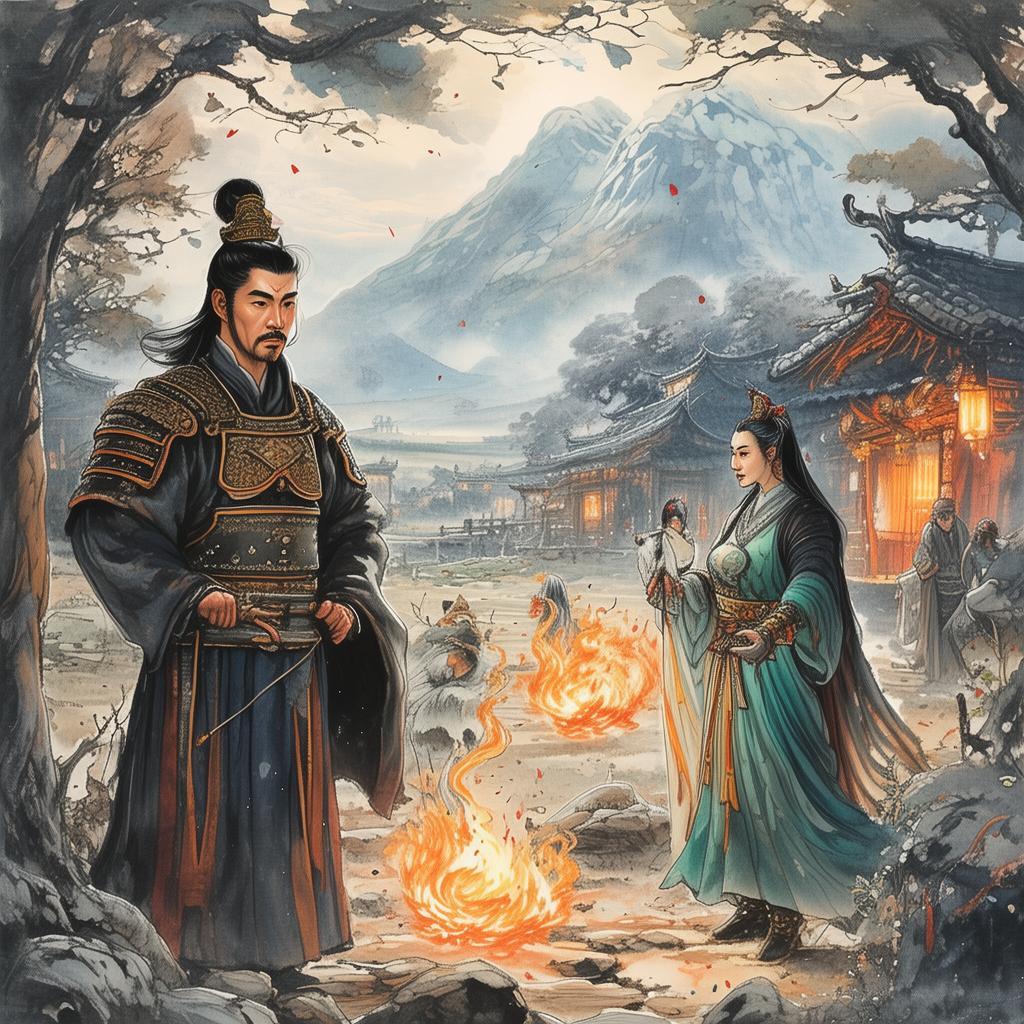The Shadow of the Mogul: A Tale of Media's Power
In the quaint village of Jingting, nestled between rolling hills and whispering rivers, there lived a humble tale weaver named Ming. Ming was a master of the ancient art of storytelling, weaving tales of heroes and monsters, love and loss, into the hearts of the villagers. His stories were the lifeblood of the community, a reminder of the values and wisdom passed down through generations.
One day, as Ming sat by the riverbank, his eyes fell upon a peculiar sight. A sleek, silver ship, resembling nothing he had ever seen, docked at the village pier. From the ship emerged a tall figure, cloaked in shadows and adorned with an air of mystery. The villagers whispered, "This is the Mogul, the master of media, who can weave tales with the power of a thousand stars."
The Mogul, known as the Shadow Mogul to the villagers, was a mythical figure who controlled the flow of information and the hearts of the masses. He had a vision to reshape the world through his media empire, and he believed that the tales of the ancients were a barrier to progress. His mission was clear: to take over the village's storytelling traditions and replace them with his own tales of power and persuasion.
Ming felt a shiver of fear run down his spine. He knew that the Mogul's influence was far-reaching, and he feared that his beloved stories would be lost. Determined to protect his heritage, Ming resolved to confront the Mogul and stand up for the power of folk tales.
The Shadow Mogul, sensing Ming's resolve, invited him to his luxurious quarters aboard his ship. There, amidst the opulence and the glimmer of screens and speakers, the Mogul spoke, "Ming, your stories are quaint and outdated. The modern world requires tales of ambition and conquest. Join me, and I will elevate your stories to new heights."
Ming's heart raced with anger and defiance. "My stories are not outdated," he retorted. "They are the foundation of our culture, the lessons passed down from our ancestors. You cannot replace them with your tales of power and persuasion."

The Mogul's eyes narrowed, and his voice grew cold. "You will see, Ming. The power of my media will outshine the flickering light of your folk tales."
As the days passed, the Mogul began to impose his influence on the village. He replaced the village's oral traditions with his own tales, broadcasting them through the speakers that dotted the landscape. The villagers, mesmerized by the new stories, began to lose interest in Ming's tales.
One evening, as the village gathered around Ming, he knew he had to act. "My friends, the Mogul's tales are a lie," he declared. "They seek to control us, to make us forget who we are. Let us stand together and reclaim our traditions."
The villagers listened, their eyes wide with hope. Ming began to weave a tale, a tale of the ancient hero who faced the Mogul's darkness and triumphed through the power of truth and unity. As he spoke, the villagers felt a surge of pride and determination.
The Mogul, watching from his ship, was taken aback by the villagers' reaction. He had underestimated the power of the folk tales and the bond between the villagers. Determined to win, he decided to confront Ming directly.
"Your tales are irrelevant, Ming," he sneered. "You cannot stand against the might of my media empire."
Ming, standing tall and unwavering, replied, "But we are the ones who created the stories, the ones who know their power. We will not be silenced."
The confrontation between Ming and the Mogul grew intense. The Mogul's media empire was vast and powerful, but Ming's folk tales had the power to unite and inspire. The villagers, now fully aware of the Mogul's intentions, joined Ming in his fight.
In the end, the villagers' voices echoed through the village, drowning out the Mogul's broadcasts. Ming's tale of unity and resistance reached the hearts of the villagers, and the Mogul's power began to wane.
The Mogul, defeated and humbled, boarded his ship and sailed away, never to return. The village of Jingting had reclaimed its storytelling traditions, and Ming's tales once again became the heart of the community.
As the villagers gathered around Ming, they realized that the power of folk tales was not just in the words, but in the hearts of those who believed in them. Ming's tale had reminded them of their heritage, their strength, and their unity.
And so, the tale of Ming and the Shadow Mogul became a legend, a reminder of the enduring power of folk tales and the resilience of the human spirit.
✨ Original Statement ✨
All articles published on this website (including but not limited to text, images, videos, and other content) are original or authorized for reposting and are protected by relevant laws. Without the explicit written permission of this website, no individual or organization may copy, modify, repost, or use the content for commercial purposes.
If you need to quote or cooperate, please contact this site for authorization. We reserve the right to pursue legal responsibility for any unauthorized use.
Hereby declared.









